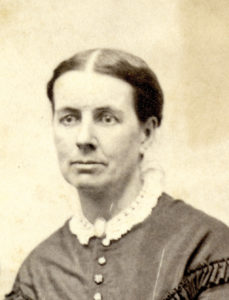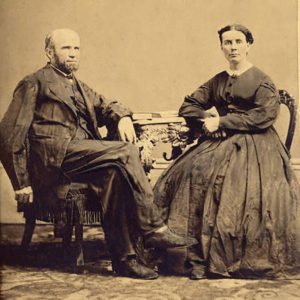Matilda Fee didn’t know how much her life would change when she married John G. Fee in 1844. She witnessed the horrors of slavery, which motivated her to join him in supporting the establishment of antislavery churches. Her childhood home, in Bracken County, Ky., near the Ohio River, was a final stop along the Underground Railroad, where her mother once served a slave owner tea while an escaped enslaved African hid in the basement.

Later on, she joined her husband’s mission to found Berea College, the school that would change many people’s lives. In 1859, while Rev. Fee was detained in Cincinnati, she had to gather up her children and escape an angry mob of men opposed to the mission of the school. She returned alone to Berea in 1862 as the Civil War raged in the nearby Battle of Richmond, which had prevented her husband from returning.
During her time as first lady of Berea College, she was president of the Ladies’ Board of Care, served in the Council of the Dean of Women and was a member of the Women’s Temperance Union. Fee took on the role of friend, sister and mother to not only her six children, but the community as well. Among her various contributions, she organized and led prayer meetings and helped grow the early Berea community.

Fee said she never regretted that her name and fame were bound to that of her husband, and her devotion to the College and its cause are evident in her life and death. She died in 1895 and is buried in the Berea Cemetery. Matilda Fee is now remembered as a pioneer and old-fashioned heroine who was as brave as she was faithful. Later, President William Frost would say she was “a friend, a sister, a mother to us all.”

